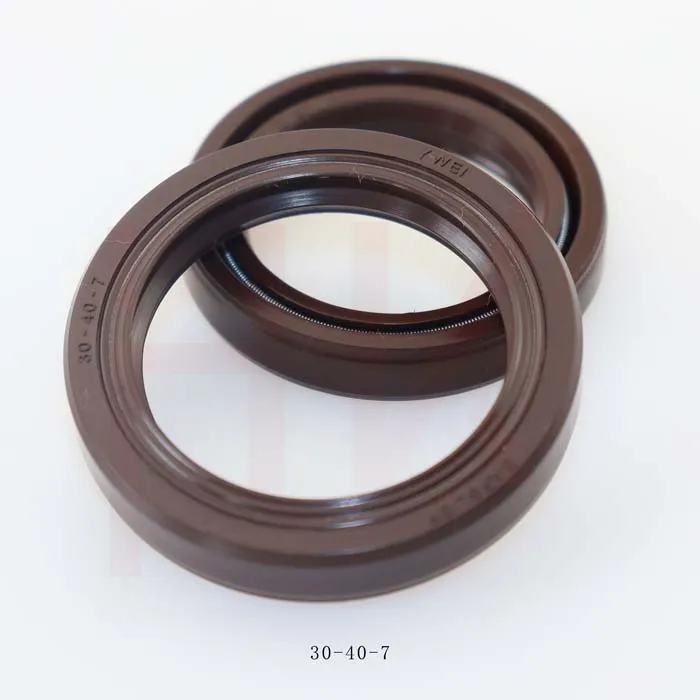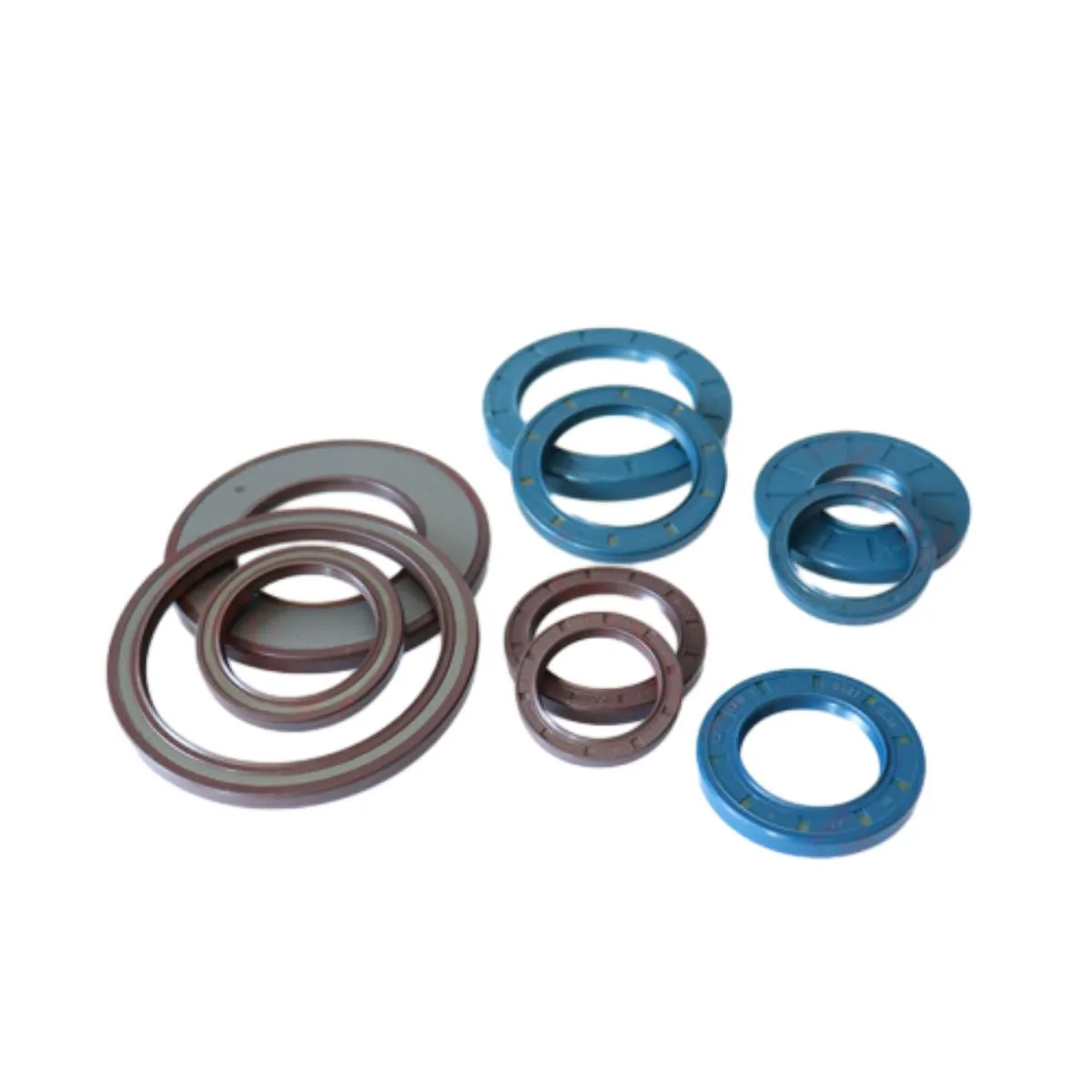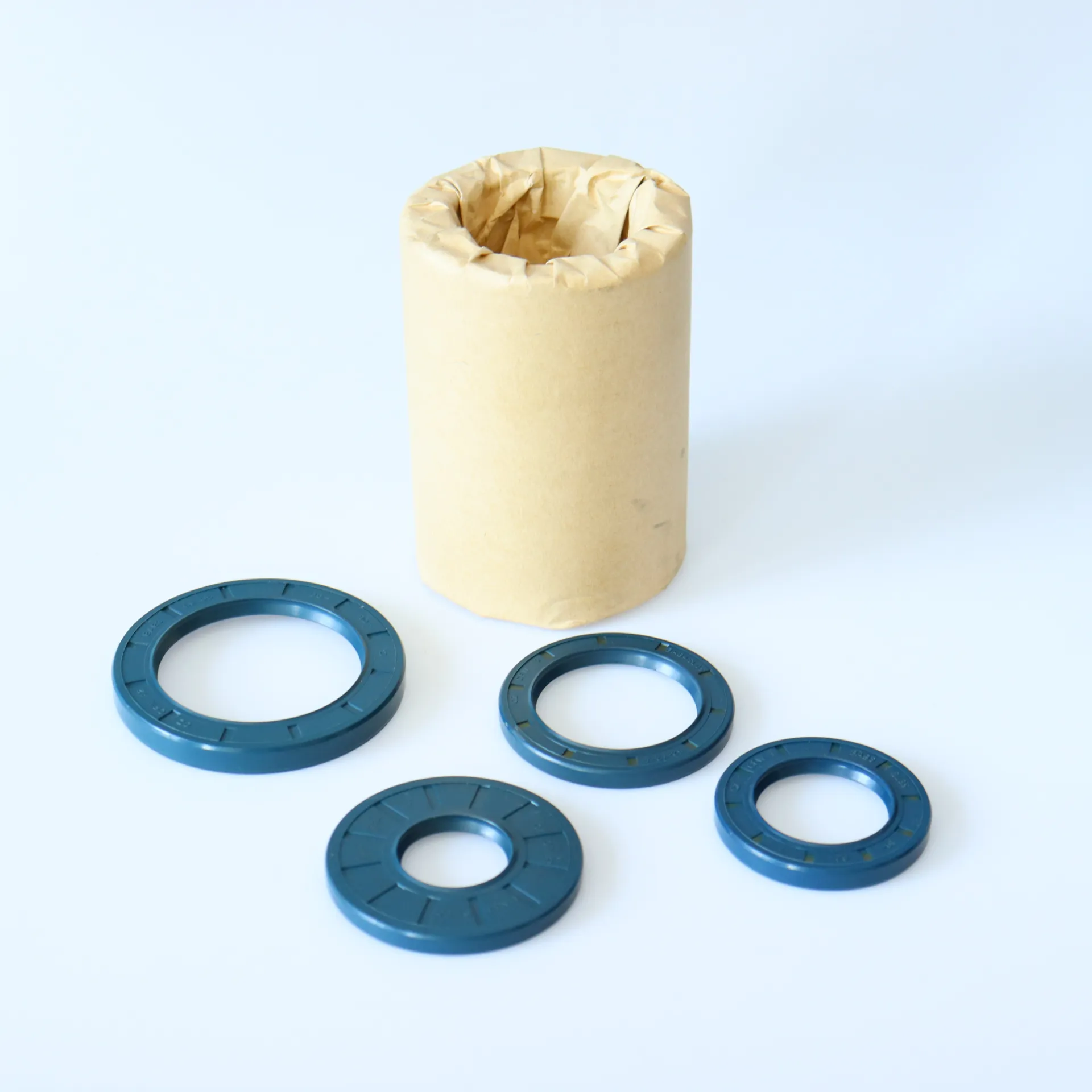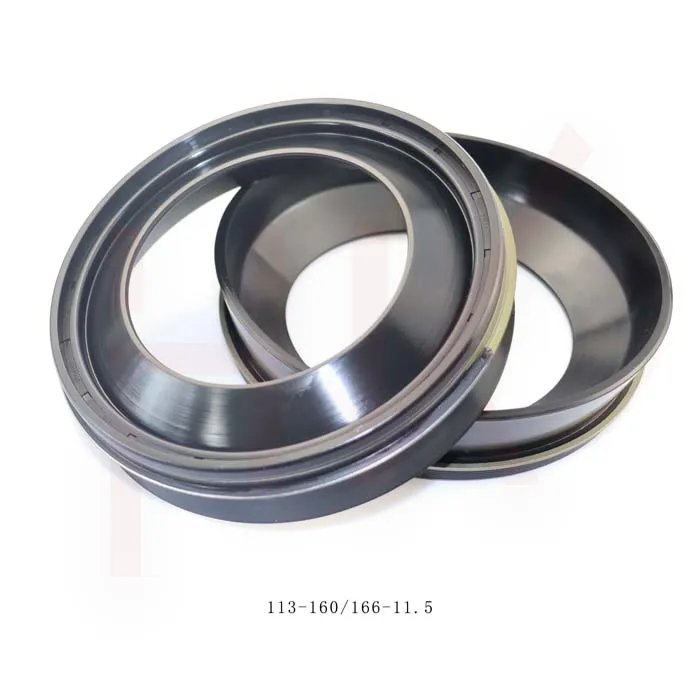Sep . 15, 2025 08:40 Back to list
Premium 30x40x7 Shaft Seal Oil Seal TCV | High-Performance Sealing
Introduction to High-Performance Shaft Sealing Solutions
In industrial machinery, the integrity of rotating equipment relies heavily on effective sealing solutions that prevent leakage of lubricants and exclude contaminants. A critical component in achieving this reliability is the shaft seal, particularly advanced designs engineered for demanding environments. This article delves into the specifics of the 30×40×7 Shaft Seal Oil Seal TCV oil seal, a high-performance sealing solution tailored for precision and durability. We will explore its technical attributes, manufacturing process, application spectrum, and the profound impact it has on operational efficiency and equipment longevity.
The TCV oil seal variant, characterized by its robust construction and optimized lip design, represents a significant advancement over conventional seals. Its internal structure, often comprising a robust metal case, a primary sealing lip, a dust lip, and a garter spring, is engineered for superior dynamic sealing performance. This particular dimension, 30mm inner diameter, 40mm outer diameter, and 7mm width, is commonly specified across a multitude of medium-duty industrial applications, offering a balance of compactness and robust sealing capability.
Industry Trends in Advanced Sealing Technologies
The landscape of industrial sealing technologies is continually evolving, driven by demands for increased operational efficiency, extended service intervals, and enhanced environmental compliance. Key trends impacting the design and material selection for seals like the 30×40×7 Shaft Seal Oil Seal TCV oil seal include:
- High-Performance Materials: A shift towards elastomers like Fluoroelastomers (FKM/Viton), Hydrogenated Nitrile Butadiene Rubber (HNBR), and advanced PTFE compounds to withstand higher temperatures, aggressive chemicals, and extreme pressures, thereby extending seal life and reducing maintenance.
- Sustainability and Environmental Compliance: Growing emphasis on sealing solutions that minimize lubricant leakage, reducing environmental contamination and waste. This includes seals designed for bio-degradable lubricants and those manufactured with environmentally friendly processes.
- Miniaturization and Integration: As equipment becomes more compact, there's a need for seals with smaller cross-sections that can still deliver robust performance, allowing for more compact system designs.
- Smart Sealing Solutions: Emerging technologies integrating sensors into seals for condition monitoring, allowing for predictive maintenance and real-time performance tracking.
- Enhanced Durability and Reduced Friction: Research into lip geometries and surface treatments to minimize friction losses, leading to energy savings and reduced heat generation, crucial for optimizing overall system efficiency.
These trends underscore the importance of precision-engineered seals that can meet the rigorous demands of modern industrial applications, pushing manufacturers to innovate constantly.
Technical Specifications and Design of the 30×40×7 TCV Oil Seal
The 30×40×7 Shaft Seal Oil Seal TCV oil seal is a testament to precision engineering, designed to offer superior performance in dynamic sealing applications. The 'TCV' designation typically refers to a robust metal-cased seal with a garter spring and a double-lip design: a primary sealing lip and a secondary dust lip. This configuration is pivotal for both retaining internal lubricants and excluding external contaminants.
Key Structural Elements:
- Metal Case: Provides structural integrity and allows for secure press-fit installation into a bore. Typically made from carbon steel or stainless steel for corrosion resistance.
- Primary Sealing Lip: The critical component responsible for creating a dynamic seal against the rotating shaft. Its geometry is optimized for minimal friction while maintaining constant contact pressure, often featuring a hydrodynamic aid for improved lubrication under the lip.
- Garter Spring: Exerts radial force on the primary sealing lip, maintaining consistent contact pressure against the shaft, even with minor shaft run-out or pressure fluctuations.
- Auxiliary (Dust) Lip: Positioned to protect the primary lip from dust, dirt, and other abrasive environmental contaminants, significantly extending the seal's service life.
- Elastomer Material: The choice of material (e.g., NBR, FKM, HNBR, Silicone) dictates the seal's compatibility with various fluids, temperature ranges, and resistance to wear. FKM (Viton) is a common choice for TCV seals due to its excellent chemical and thermal resistance.

Typical Product Specifications:
The selection of the appropriate elastomer and metal case material is crucial and depends entirely on the operating environment, media compatibility, and temperature profile of the application. FKM offers superior resistance to a wide range of chemicals and high temperatures, making it ideal for many aggressive industrial settings.
Manufacturing Process Flow for 30×40×7 TCV Oil Seals
The production of a high-quality 30×40×7 Shaft Seal Oil Seal TCV oil seal involves a meticulous multi-stage manufacturing process, combining material science with precision engineering. Adherence to strict quality control at each step ensures optimal performance and extended service life.
Process Steps:
-
Material Selection & Preparation:
High-grade elastomers (e.g., FKM, NBR, HNBR) are chosen based on application requirements for chemical resistance, temperature range, and mechanical properties. Metal components (carbon steel, stainless steel for the case and garter spring wire) are selected for strength and corrosion resistance. Elastomers are compounded with fillers, vulcanizing agents, and plasticizers to achieve specific properties.
-
Metal Case Stamping & Forming:
Coiled metal sheets undergo precision stamping and deep drawing processes to form the exact dimensions of the outer metal case. This ensures a tight press-fit and structural integrity. CNC machining may be applied for critical dimensions or features on specialized cases.
-
Elastomer Molding & Vulcanization:
The prepared elastomer compound is molded into the desired lip geometry, often through compression molding or injection molding techniques. During this stage, the elastomer is vulcanized (cured) under heat and pressure, transforming it into a durable, elastic material. Precision molds ensure the accurate formation of the primary and auxiliary lips.
-
Bonding & Assembly:
The vulcanized elastomer element is securely bonded to the metal case. This can involve adhesive bonding or mechanical interlocking during the molding process itself. The garter spring, typically made from high-tensile steel, is then precisely inserted into the groove around the primary sealing lip to provide continuous radial force.
-
Trimming & Finishing:
Excess flash material from the molding process is precisely trimmed. The seals undergo deflashing and surface finishing to ensure smooth sealing surfaces and aesthetic quality.
-
Quality Control & Testing:
Each seal batch undergoes rigorous quality checks. This includes dimensional inspection (using optical comparators and CMMs), material property tests (hardness, tensile strength), visual inspection for defects, and functional tests. Leakage tests (e.g., air decay testing), friction torque tests, and endurance testing are performed according to standards like ISO 6194, DIN 3760, and relevant ASTM standards. Seals must meet defined service life expectations under simulated conditions.
-
Packaging:
Finished seals are carefully packaged to prevent damage and contamination during storage and transit, often in anti-static or protective bags.

Target Industries & Advantages:
This precise manufacturing process ensures that the seal delivers specific advantages in demanding target industries such as:
- Petrochemical: Corrosion resistance against hydrocarbons, high-temperature stability, extended service life reducing costly shutdowns.
- Metallurgy: Robustness against abrasive media and high temperatures prevalent in rolling mills and processing equipment.
- Water Supply & Drainage: Prevention of water ingress into bearings, resisting mild chemicals and ensuring pump longevity.
- Heavy Machinery & Automotive: Maintaining lubricant integrity in gearboxes, axles, and hydraulic pumps, leading to energy savings through reduced friction and enhanced component lifespan.
The rigorous testing and material selection contribute directly to energy saving through reduced friction, superior corrosion resistance, and significantly extended operational periods between maintenance cycles.
Application Scenarios and Case Studies
The versatility and robust design of the 30×40×7 Shaft Seal Oil Seal TCV oil seal make it indispensable across a wide array of industrial applications where reliable shaft sealing is paramount. Its specific dimensions and TCV configuration are optimized for machinery requiring precise lubricant retention and effective contaminant exclusion.
Typical Application Areas:
- Gearboxes & Speed Reducers: Critical for sealing input and output shafts, preventing oil leakage and ingress of dust, prolonging gear and bearing life.
- Electric Motors: Used to protect motor bearings from dust, moisture, and lubricant loss, ensuring smooth operation and preventing premature bearing failure.
- Pumps & Compressors: Sealing rotating shafts to contain pumped media or lubricants, especially in chemical processing, water treatment, and HVAC systems.
- Agricultural Machinery: Durable sealing for axles and drivelines, protecting against harsh environmental conditions (dirt, moisture, agricultural chemicals).
- Machine Tools: Precision sealing in spindles and hydraulic units, ensuring clean operation and accurate machining processes.
- Material Handling Equipment: Conveyors, forklifts, and hoisting equipment benefit from reliable shaft seals to maintain lubrication in rollers, wheels, and drive mechanisms.

Application Case Studies:
Case Study 1: Heavy-Duty Industrial Mixer Gearbox
A leading chemical processing plant faced recurrent oil leakage issues from the main output shaft of a critical industrial mixer's gearbox. The previous seals, made of NBR, deteriorated rapidly due to exposure to aggressive chemicals and elevated operating temperatures (peaking at 120°C). The constant maintenance and lubricant loss led to significant downtime and environmental concerns.
Solution: We recommended upgrading to the 30×40×7 Shaft Seal Oil Seal TCV oil seal with an FKM elastomer for its superior chemical and thermal resistance. The robust metal case ensured a secure fit, and the double-lip design provided enhanced protection against process fluid ingress and oil leakage.
Results: Post-implementation, the mixer operated for over 18 months without any leakage, a five-fold increase in seal life compared to the previous solution. This resulted in a 30% reduction in maintenance costs, significant energy savings due to continuous operation, and improved environmental compliance.
Case Study 2: Submersible Pump for Wastewater Treatment
A municipal wastewater treatment facility experienced premature bearing failures in its submersible pumps, primarily due to water ingress past the shaft seals. The abrasive nature of the wastewater and intermittent dry-running conditions presented a significant challenge for conventional seals.
Solution: We supplied custom-compounded 30×40×7 Shaft Seal Oil Seal TCV oil seal units, utilizing a specialized HNBR elastomer for enhanced abrasion resistance and excellent hydrolytic stability in aqueous environments. The dual-lip design was crucial in preventing external contaminants and water from reaching the lubricated bearings.
Results: The upgraded seals dramatically extended the mean time between failures (MTBF) for the pumps by 200%. Bearing life was prolonged, reducing replacement costs and unscheduled downtime. The superior sealing efficiency contributed to an estimated 5% energy saving by preventing friction losses caused by contaminated lubricants.
Technical Advantages and Performance Metrics
The adoption of the 30×40×7 Shaft Seal Oil Seal TCV oil seal translates directly into measurable technical advantages that impact operational efficiency, reliability, and cost-effectiveness for industrial clients. These advantages stem from its advanced design, material selection, and rigorous manufacturing standards.
Key Advantages:
- Extended Service Life: The robust FKM elastomer, coupled with a precision-engineered lip geometry and garter spring, ensures a consistent sealing force and superior resistance to wear, heat, and chemical degradation. This significantly prolongs the seal's operational life, reducing replacement frequency.
- Superior Contaminant Exclusion: The TCV's double-lip design acts as an effective barrier against dust, dirt, moisture, and other external abrasives, protecting internal bearings and lubricants from contamination, a leading cause of premature equipment failure.
- Excellent Fluid Retention: Maintains lubricant integrity within the sealed system, preventing leakage which can lead to environmental hazards, messy operations, and costly lubricant replenishment.
- High Temperature and Chemical Resistance: Utilizing FKM or other high-performance elastomers allows the seal to operate reliably in environments with extreme temperatures (up to 200°C) and exposure to a broad spectrum of aggressive chemicals, oils, and fuels.
- Reduced Friction and Energy Consumption: Optimized lip design with hydrodynamic features ensures a thin film of lubricant under the sealing lip, minimizing friction and resultant heat generation. This contributes to lower power consumption for rotating equipment.
- Robust Installation and Stability: The metal-cased design provides rigidity and ensures a stable, press-fit installation into the housing bore, resisting extrusion and movement under dynamic conditions.

Performance Data Highlights (Based on ISO 6194-1 Testing):
- Typical Dynamic Friction: 0.2 - 0.5 Nm (at 1000 RPM, 0.1 MPa differential pressure for a 30mm shaft).
- Leakage Rate:
- Pressure Resistance: Sustains up to 0.5 MPa (72.5 PSI) without extrusion at typical peripheral speeds.
- Expected Service Life: > 5,000 hours in demanding applications; > 10,000 hours in optimal conditions (e.g., proper lubrication, shaft finish, temperature).
These performance metrics, often verified through extensive in-house and third-party testing, affirm the reliability and efficiency gains offered by this advanced TCV oil seal design.
Vendor Comparison and Customization Solutions
When selecting a shaft seal, discerning B2B buyers consider not only product specifications but also vendor capabilities, including material expertise, customization options, and after-sales support. Here, we provide a comparison framework and highlight our commitment to tailored solutions for the 30×40×7 Shaft Seal Oil Seal TCV oil seal.
Vendor Comparison Considerations:
Customized Solutions:
Recognizing that no two industrial applications are identical, we offer comprehensive customization services for the 30×40×7 Shaft Seal Oil Seal TCV oil seal. Our engineering team collaborates closely with clients to tailor solutions that precisely meet unique operating conditions and performance requirements.
- Material Optimization: Beyond standard NBR and FKM, we can compound specialized elastomers like HNBR for improved abrasion resistance, AEM for higher low-temperature flexibility, or specific PTFE variants for chemical inertness in extreme environments.
- Lip Geometry Modifications: Fine-tuning the primary and auxiliary lip angles, contact width, and inclusion of advanced hydrodynamic features to optimize sealing performance for specific shaft speeds, pressures, and media viscosities.
- Garter Spring Adjustments: Custom spring tensioning to accommodate varying shaft run-out, vibration levels, or specific pressure differentials, ensuring consistent lip contact.
- Metal Case Options: Offering stainless steel (304, 316) for enhanced corrosion resistance, or specialized coatings for challenging chemical exposures.
- Surface Treatments: Applying specialized coatings to the sealing lip to further reduce friction, enhance wear resistance, or improve dry-running capabilities in intermittent operations.

Our consultative approach ensures that clients receive a sealing solution perfectly integrated with their equipment, leading to unparalleled reliability and total cost of ownership reductions.
Trust and Reliability: FAQs, Lead Time, Warranty, and Support
Establishing trust with B2B partners is paramount. We are committed to transparency in our processes, product quality, and customer support for the 30×40×7 Shaft Seal Oil Seal TCV oil seal and all our sealing solutions.
Frequently Asked Questions (FAQs):
Q1: What materials are available for the 30×40×7 TCV oil seal?
A1: Standard materials include NBR, FKM (Viton), and HNBR for the elastomer, with carbon steel or stainless steel for the metal case. Custom materials like EPDM, Silicone, or specialized PTFE compounds are available upon request to match specific chemical or temperature requirements.
Q2: What is the recommended shaft surface finish for optimal seal life?
A2: For best performance, a shaft surface roughness of Ra 0.2 – 0.8 µm (8-32 µin) and Rz 1.0 – 5.0 µm (40-200 µin) is recommended. Avoid lead-in chamfers with sharp edges which can damage the sealing lip during installation.
Q3: How do I select the correct seal for my application?
A3: Proper selection depends on several factors: shaft diameter, housing bore diameter, operating temperature, maximum pressure, shaft speed, media compatibility, and the presence of external contaminants. Our technical support team can assist you in choosing the optimal 30×40×7 Shaft Seal Oil Seal TCV oil seal or a customized solution.
Q4: Are your products certified to industry standards?
A4: Yes, our manufacturing processes are ISO 9001 certified, and our materials comply with international standards such as REACH and RoHS. Product testing adheres to ISO 6194, DIN 3760, and relevant ASTM standards, ensuring consistent quality and performance.
Lead Time and Fulfillment:
For standard 30×40×7 Shaft Seal Oil Seal TCV oil seal units, typical lead times range from 2 to 4 weeks, depending on order volume and current stock levels. Expedited options are available for urgent requirements. Custom solutions or seals with specialized materials may require 4 to 8 weeks for development, prototyping, and production. We maintain robust inventory management and flexible production scheduling to meet client demands efficiently.
Warranty Commitments:
We stand behind the quality of our products. All our seals are covered by a comprehensive warranty against manufacturing defects. Specific warranty periods and terms are detailed in our sales agreements and typically cover 12 months from the date of installation or 18 months from the date of shipment, whichever comes first, provided proper installation and operating conditions are met. Our commitment to quality is upheld through stringent quality control at every stage of production.
Customer Support and After-Sales Service:
Our dedicated customer support team and experienced technical engineers are available to provide expert assistance throughout the product lifecycle. From initial application assessment and material selection to installation guidance and troubleshooting, we ensure our clients receive prompt and effective support. We offer technical webinars, detailed installation guides, and direct consultation to optimize seal performance and longevity.
Conclusion
The 30×40×7 Shaft Seal Oil Seal TCV oil seal represents a pivotal component in ensuring the reliability and efficiency of industrial rotating machinery. Its advanced design, coupled with high-performance material options and precise manufacturing, addresses the rigorous demands of modern industrial environments. By prioritizing durability, chemical resistance, and efficient sealing, this product contributes significantly to reducing operational costs, minimizing downtime, and enhancing equipment longevity across diverse sectors such as petrochemical, metallurgy, and heavy machinery.
Our commitment to Google principles is reflected in our detailed presentation of technical specifications, adherence to industry standards, transparent processes, and robust customer support. We invite B2B decision-makers and engineers to explore how our specialized sealing solutions can optimize their operations and provide a competitive edge.
References:
- ISO 6194-1: Rotary shaft lip type seals, Part 1: Nominal dimensions and tolerances. International Organization for Standardization.
- DIN 3760: Rotary shaft lip type seals for use in lubricated systems. Deutsches Institut für Normung e.V.
- ASTM D2000: Standard Classification System for Rubber Products in Automotive Applications. ASTM International.
- Parker Hannifin Corporation, O-Ring Handbook, ORD 5700.
- Freudenberg Sealing Technologies, Radial Shaft Seals Technical Manual.
-
Reliable Oil Seal Wheel Hub Solutions for Industrial & Automotive Use
NewsNov.17,2025
-
Durable Front Hub Oil Solutions for Industry – HKAiSeal
NewsNov.17,2025
-
Wholesale Hydraulic Pump Motor Seal Kit A4VSO250 | In Stock
NewsNov.17,2025
-
Pump Seal Kits: Essential Components for Industrial Reliability
NewsNov.17,2025
-
TCV Oil Seal - Double-Lip, Spring-Loaded, High Temp & Wear
NewsNov.17,2025
-
Hydraulic Seal Kits: Reliable Solutions for Industrial Equipment
NewsNov.17,2025
-
Combined oil seal 659214 12001903B, fits 119990, NBR OEM
NewsNov.17,2025
Products categories
















